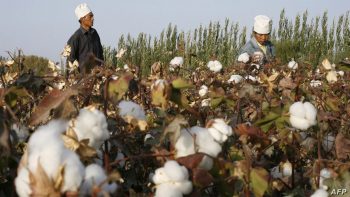
US Customs and Border Protection (CBP) recently announced it will detain cotton products produced in China’s Xinjiang Uyghur Autonomous Region (XUAR) from January 13 at all US ports of entry. CBP issued a withhold release order (WRO) against cotton products and tomato products produced in XUAR based on reports of use of detainee or prison labour and situations of forced labour.
The agency said that it identified the following forced labour indicators through the course of its investigation: debt bondage, restriction of movement, isolation, intimidation and threats, withholding of wages, and abusive living and working conditions.
“Department of Homeland Security (DHS) will not tolerate forced labour of any kind in US supply chains. We will continue to protect the American people and investigate credible allegations of forced labour, we will prevent goods made by forced labour from entering our country, and we demand the Chinese close their camps and stop their human rights violations,” said Acting Department of Homeland Security Deputy Secretary Ken Cuccinelli.
This WRO will direct CBP personnel at all US ports of entry to detain cotton products and tomato products grown or produced by entities operating in Xinjiang. These products include apparel, textiles, tomato seeds, canned tomatoes, tomato sauce, and other goods made with cotton and tomatoes.
Importers are responsible for ensuring the products they are attempting to import do not exploit forced labour at any point in their supply chain, including the production or harvesting of the raw material.
In July 2020, the US government issued an advisory to caution businesses about the reputational, financial, and legal risks of forced labor in Xinjiang.
On December 2 last year, CBP announced the issuance of a WRO on cotton and cotton products originating from the Xinjiang Production and Construction Corps, which CBP claims is an economic and paramilitary organisation subordinate to the Chinese Communist Party.
This is the fourth WRO that CBP has issued since the beginning of fiscal 2021, and the second on products originating in Xinjiang. Eight of the 13 WRO that CBP issued in Fiscal Year 2020 were on goods made by forced labor in China.










